De Amerikaanse schrijver Richard Powers werd geboren op 18 juni 1957 in Evanston, Illinois. Zie ook alle tags voor Richard Powers op dit blog.
Uit: The Time of Our Singing
“This is how I see him, although he’ll live another third of a century. This is the moment when the world first finds him out, the night I hear where his voice is headed. I’m up onstage, too, at the battered Steinway with its caramel action. I accompany him, trying to keep up, trying not to listen to that siren voice that says, Stop your fingers, crash your boat on the reef of keys, and die in peace.
Though I make no fatal fumbles, that night is not my proudest as a musician. After the concert, I’ll ask my brother again to let me go, to find an accompanist who can do him justice. And again he’ll refuse. “I already have one, Joey.”
I’m there, up onstage with him. But at the same time, I’m down in the hall, in the place I always sit at concerts: eight rows back, just inside the left aisle. I sit where I can see my own: fingers moving, where I can study my brother’s face–close enough to see everything, but far enough to survive seeing.
Stage fright ought to paralyze us. Backstage is a single bleeding ulcer. Performers who’ve spent their whole youth training for this moment now prepare to spend their old age explaining why it didn’t go as planned. The hall fills with venom and envy, families who’ve traveled hundreds of miles to see their lives’ pride reduced to runner-up. My brother alone is fearless. He has already paid. This public contest has nothing to do with music. Music means those years of harmonizing together, still in the shell of our family, before that shell broke open and burned. Jonah glides through the backstage fright, the dressing rooms full of well-bred nausea, on a cloud, as though through a dress rehearsal for a performance already canceled. Onstage, against this sea of panic, his calm electrifies. The drape of his hand on the piano’s black enamel ravishes his listeners, the essence of his sound before he even makes one.
I see him on this night of his first open triumph, from four decades on. He still has that softness around his eyes that later life will crack and line. His jaw quakes a little on Dowland’s quarter notes, but the notes do not. He drops his head toward his right shoulder as he lifts to the high C, shrinking from his entranced listeners. The face shudders, a look only I can see, from my perch behind the piano. The broken-ridged bridge of his nose, his bruised brown lips, the two bumps of bone riding his eyes: almost my own face, but keener, a year older, a shade lighter. That breakaway shade: the public record of our family’s private crime.”
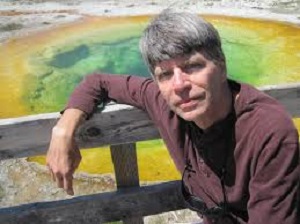
De Franse schrijver Raymond Radiguet werd geboren op 18 juni 1903 in Saint-Maur-des-Fossés. Zie ook alle tags voor Raymond Radiguet op dit blog.
Uit: Le diable au corps
” – Taisez-vous donc ! criait la dame, ce qui excitait les « En voilà un ! En voilà un ! » du public. A ces cris, la folle, s’armant de tuiles, en envoya une sur le casque du pompier parvenu au faîte. Les cinq autres redescendirent aussitôt.
Tandis que les tirs, les manèges, les baraques, place de la Mairie, se lamentaient de voir si peu de clientèle, une nuit où la recette devait être fructueuse, les plus hardis voyous escaladaient les murs et se pressaient sur la pelouse pour suivre la chasse. La folle disait des choses que j’ai oubliées, avec cette profonde mélancolie résignée que donne aux voix la certitude qu’on a raison, que tout le monde se trompe. Les voyous, qui préféraient ce spectacle à la foire, voulaient cependant combiner les plaisirs. Aussi, tremblant que la folle fût prise en leur absence, couraient-ils faire vite un tour de chevaux de bois. D’autres, plus sages, installés sur les branches des tilleuls, comme pourla revue de Vincennes, se contentaient d’allumer des feux de Bengale, des pétards.
On imagine l’angoisse du couple Maréchaud, chez soi, enfermé au milieu de ce bruit et de ces lueurs.
Le conseiller municipal, époux de la dame charitable, grimpé sur un petit mur de la grille, improvisait un discours sur la couardise des propriétaires. On l’applaudit.
Croyant que c’était elle qu’on applaudissait, la folle saluait, un paquet de tuiles sous chaque bras, car elle en jetait une chaque fois que miroitait un casque. De sa voix inhumaine, elle remerciait qu’on l’eût enfin comprise. Je pensai à quelque fille, capitaine corsaire, restant seule sur son bateau qui sombre.
La foule se dispersait, un peu lasse. J’avais voulu rester avec mon père, tandis que ma mère, pour assouvir ce besoin de mal au coeur qu’ont les enfants, conduisait les siens au manège en montagnes russes.”
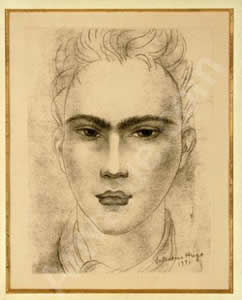
De Engelse dichter Geoffrey Hill werd geboren op 18 juni 1932 in Bromsgrove, Worcestershire. Zie ook alle tags voor Geoffrey Hill op dit blog.
Funeral Music
William de la Pole, Duke of Suffolk: beheaded 1450
John Tiptoft, Earl of Worcester: beheaded 1470
Anthony Woodville, Earl Rivers: beheaded 1483
1
Processionals in the exemplary cave,
Benediction of shadows. Pomfret. London.
The voice fragrant with mannered humility,
With an equable contempt for this world,
‘In honorem Trinitatis’. Crash. The head
Struck down into a meaty conduit of blood.
So these dispose themselves to receive each
Pentecostal blow from axe or seraph,
Spattering block-straw with mortal residue.
Psalteries whine through the empyrean. Fire
Flares in the pit, ghosting upon stone
Creatures of such rampant state, vacuous
Ceremony of possession, restless
Habitation, no man’s dwelling-place.
2
For whom do we scrape our tribute of pain—
For none but the ritual king? We meditate
A rueful mystery; we are dying
To satisfy fat Caritas, those
Wiped jaws of stone. (Suppose all reconciled
By silent music; imagine the future
Flashed back at us, like steel against sun,
Ultimate recompense.) Recall the cold
Of Towton on Palm Sunday before dawn,
Wakefield, Tewkesbury: fastidious trumpets
Shrilling into the ruck; some trampled
Acres, parched, sodden or blanched by sleet,
Stuck with strange-postured dead. Recall the wind’s
Flurrying, darkness over the human mire.

De Nederlandse schrijver en dichter Bert Schierbeek werd geboren op 18 juni 1918 in Glanerbrug in Twente. Zie ook alle tags voor Bert Schierbeek op dit blog.
Uit: Weerwerk (Fragment)
… zegt Marcel
Marcel Baillon
net van zijn tractor gestapt
hij heeft gemolken
hoofd rood
haar rood
helemaal rood
bloedrood dus
van de gloeiende zon
het teveel aan wijn
tussen twee slokken bier door zegt ie:
wijzend op een mus
(op een telefoondraad)
soms blijft een vogel zitten
maar nooit lang
dan tikt ie met zijn vleugels tegen de lucht
en vliegt weg
hij valt niet
hij tikt
en weg is ie
…
die is goed georganiseerd
die weet waarheen
naar plaatsen waar wij niet
kunnen zitten of staan
hij kent het land van boven
en weet van te warm
‘(’t is 40 graden Celsius in de zon)
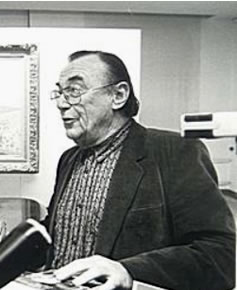
De Duitse dichteres Karin Fellner werd geboren op 18 juni 1970 in München. Zie ook alle tags voor Karin Fellner op dit blog.
achtäugige du
fingrige teegrüne spinne
fingierst nichts auf den frischen
halmen die schlüssigkeit
der wiese und dein ganz
körperhorchen auf ferne
erschütterungen vielleicht
von jener doberfrau in
klobigen schuhn während du
luftbeinig deinen leib
lamellen tracheen über
lichtstängeln wippst und so
filigran deinen adel
im neigen der kiefer zeigst
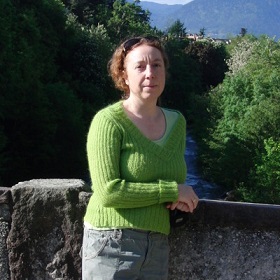
De Vlaamse schrijver Aster Berkhof (eig. Louis van den Bergh werd geboren in Rijkevorsel op 18 juni 1920. Zie ook alle tags voor Aster Berkhof op dit blog.
Uit: Veel geluk professor
“Deze edelmoedige gedachten hadden een zo weldoende invloed op Pierre, dat hij niet eens vloekte toen hij opeens tot aan de buik in een sneeuwgat schoot en minutenlang moest wroeten om er weer uit te komen. Hij schudde glimlachend het hoofd, klopte opgewekt de sneeuw van zijn kleren, nam zijn valies weer op en liep voort.
Had hij eerlijk zijn geweten onderzocht, dan zou hij beseft hebben dat die ongewone tederheid van gevoelens ten opzichte van rector Schlesinger, die inderdaad een onmogelijke brompot was, feitelijk niets te maken had met Schlesinger zelf, maar alleen met de oude professor Steinbach. Deze professor, die door de rector aangeduid was om hier in St.-Moritz de wintercursus literatuurgeschiedenis te geven in het Internationale Instituut van lady Thompson, was de avond tevoren namelijk onverwacht ziek geworden, en na een eerste onderzoek door de huisdokter was gebleken, dat hij bij hoogdringendheid naar de kliniek van Dr. Rosch gevoerd moest worden, en aldaar gedurende drie maanden in observatie en behandeling moest blijven. Een uur later had Pierre, die docent was bij Steinbach, een briefje gekregen dat hij zich bij de rector moest aanbieden, en tien minuten later was hij ijlings door de straten van Wenen aan het rennen, om nog gauw enkele dringende zaken af te handelen, een nieuwe overjas te kopen, en hij moest nog alles inpakken voor zijn afreis de volgende morgen.
Hij had geen minuut geslapen die nacht, en in zijn opwinding had hij driemaal opnieuw zijn valies moeten openmaken, omdat hij iedere keer iets vergeten had, en toen hij al naar het station aan het lopen was, had hij er nog juist op tijd aan gedacht dat hij het belangrijkste van alles vergeten had: de notities die hij nodig zou hebben om als plaatsvervanger van professor Steinbach de cursus literatuurgeschiedenis te geven.”
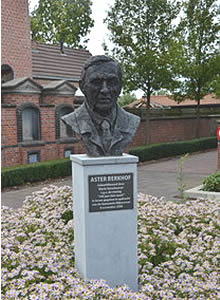
Borstbeeld in St-Jozef-Rijkevorsel
De Duitse schrijfster en vertaalster Mirjam Pressler werd geboren op 18 juni 1940 in Darmstadt. Zie ook alle tags voor Mirjam Pressler op dit blog.
Uit: Ein Buch für Hanna
„Abwechselnd bissen sie in den Apfel, nahmen ganz kleine Stücke, um lange etwas davon zu haben, und Mira erzählte dabei, wie sie den Deutschen in die Hände gefallen waren. Sie, Rachel, Bella und Rosa hatten beschlossen, gemeinsam Rosch Haschana zu feiern, deshalb waren sie nach Nyborg ins Zentrum gefahren. Sie wollten dort schlafen und erst am nächsten Morgen nach Hause zurückkehren. Doch mitten in der Nacht kamen die Deutschen.
Eigentlich suchten sie Inger Abrahamson und ihren Mann, die waren jedoch gar nicht da, sie waren für die Feiertage zu Ingers Eltern gefahren.
„Nun, damit sie den Weg nicht vergeblich gemacht haben, haben sie wenigstens uns vier mitgenommen“, sagte Mira.
„Und was ist mit den anderen? Mit Efraim?“
Mira zuckte mit den Schultern. „Keine Ahnung.“ Sie strich sich die Haare aus der Stirn.
„Findest du es nicht seltsam, dass wir deshalb geschnappt wurden, weil wir einen jüdischen Feiertag begehen wollten? Ausgerechnet wir, die wir so gar nicht fromm sind. Was für einen dummen, hinterhältigen Streich hat uns das Schicksal gespielt. Und dir auch.“
Hanna senkte den Kopf. „Es war nicht das Schicksal“, sagte sie. „Es war auch nicht Gott, wie sie uns früher, in der Schule, weismachen wollten.
Es waren diese Nazis. Es war dieses schreiende Ungeheuer, sein Name sei ausgelöscht.“
„Bis in alle Ewigkeit“, sagte Mira. „Und jetzt komm, vielleicht kriegen wir ja noch was.“
Hanna stand auf. Sie war bereit, so zu tun, als ob. Als wäre dies hier nichts anderes als eine weitere Etappe ihres Lebens. Dankbar berührte sie Miras Hand.“
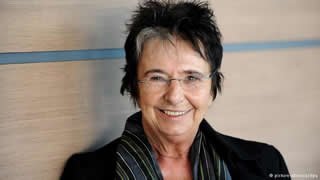
Zie voor nog meer schrijvers van de 18e juni ook mijn vorige blog van vandaag.

2 thoughts on “Richard Powers, Raymond Radiguet, Geoffrey Hill, Bert Schierbeek, Aster Berkhof, Karin Fellner, Mirjam Pressler”
De commentaren zijn gesloten